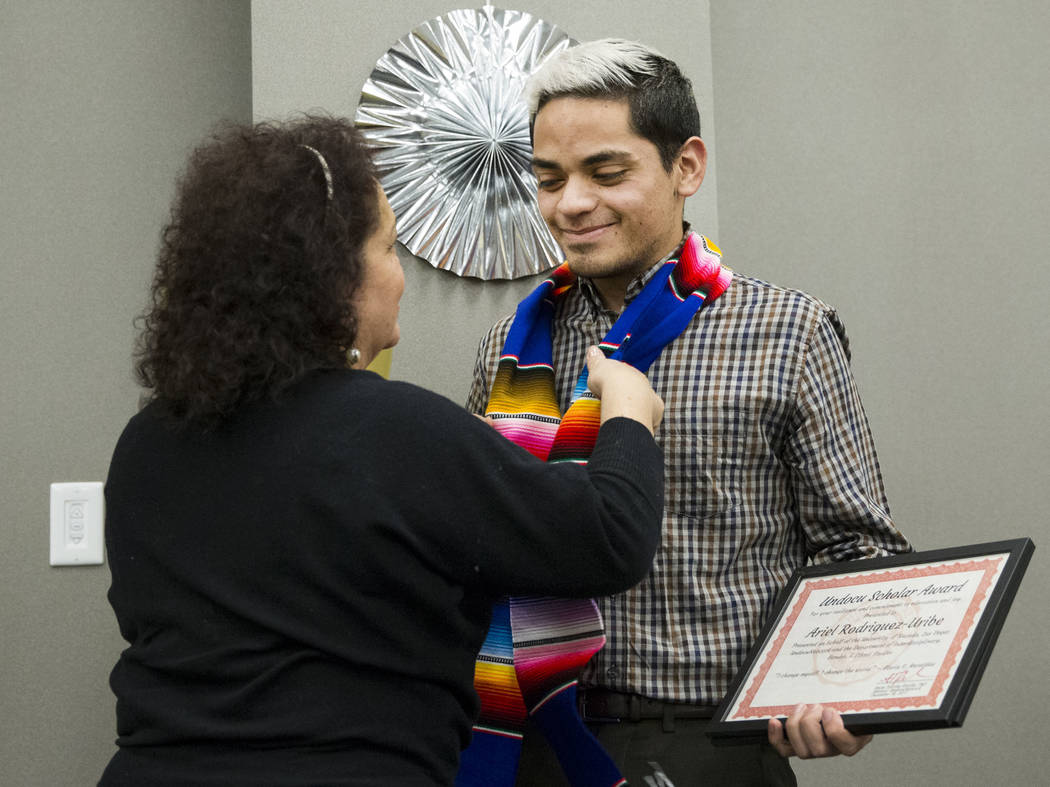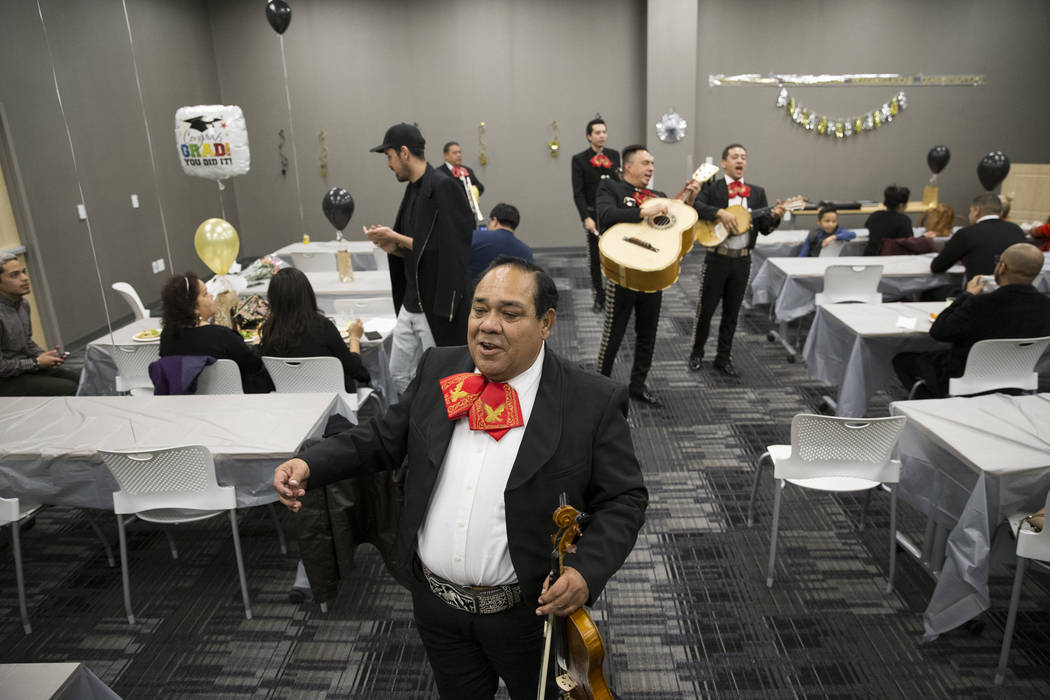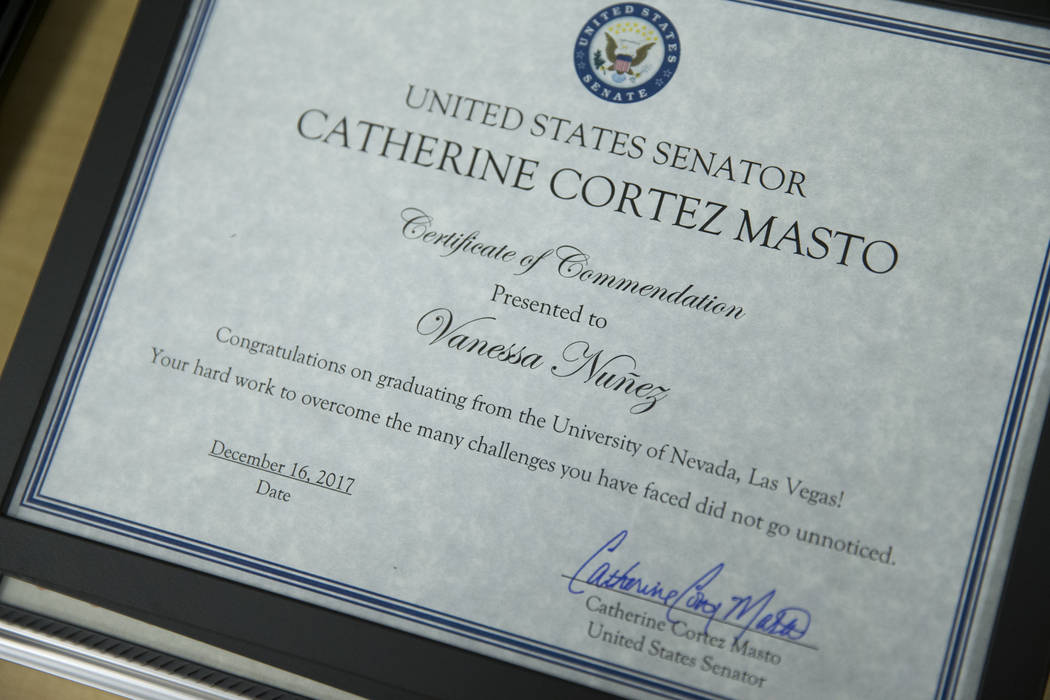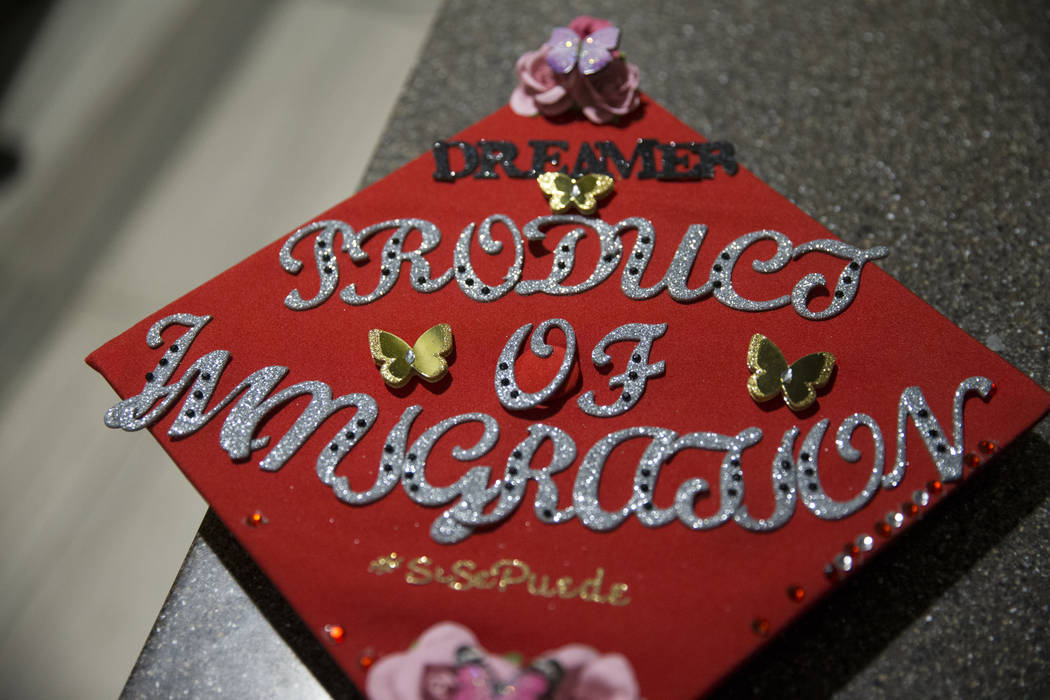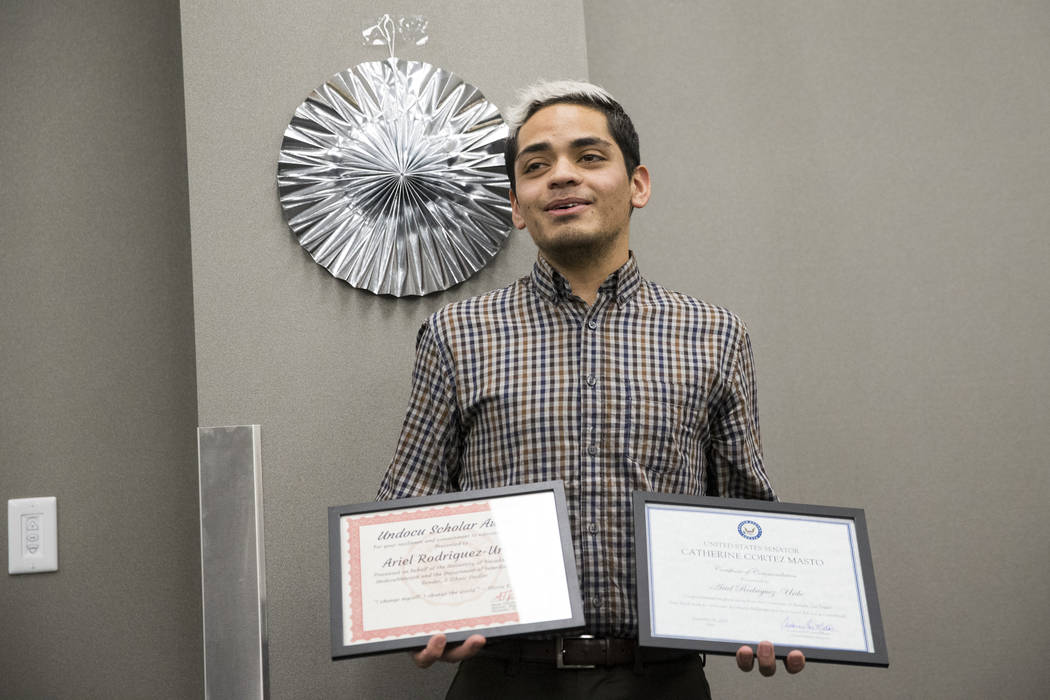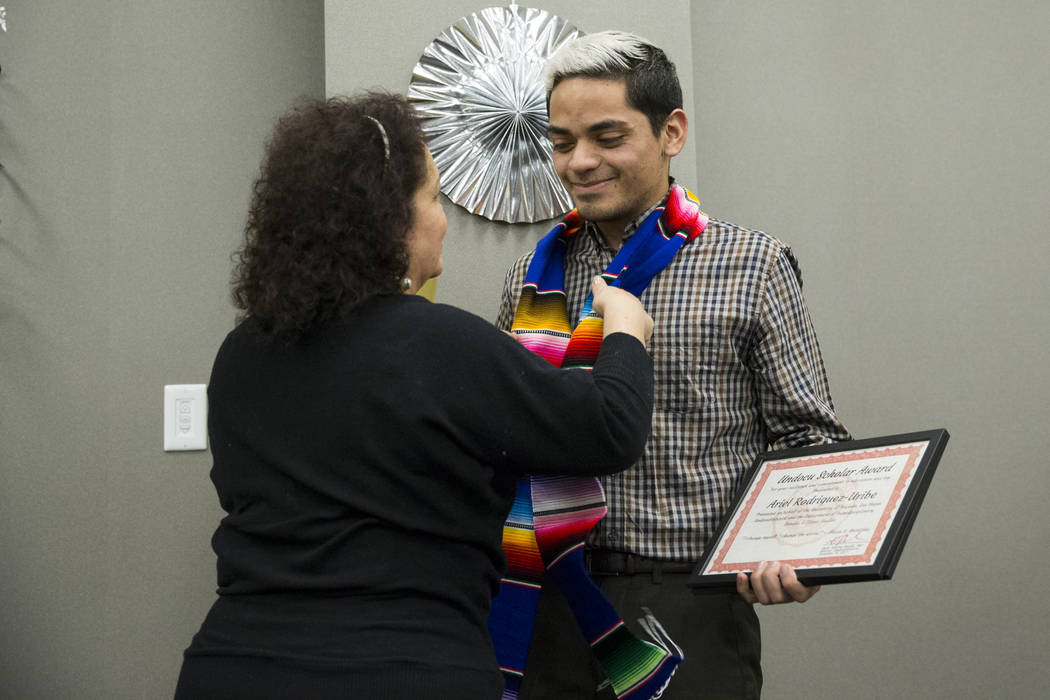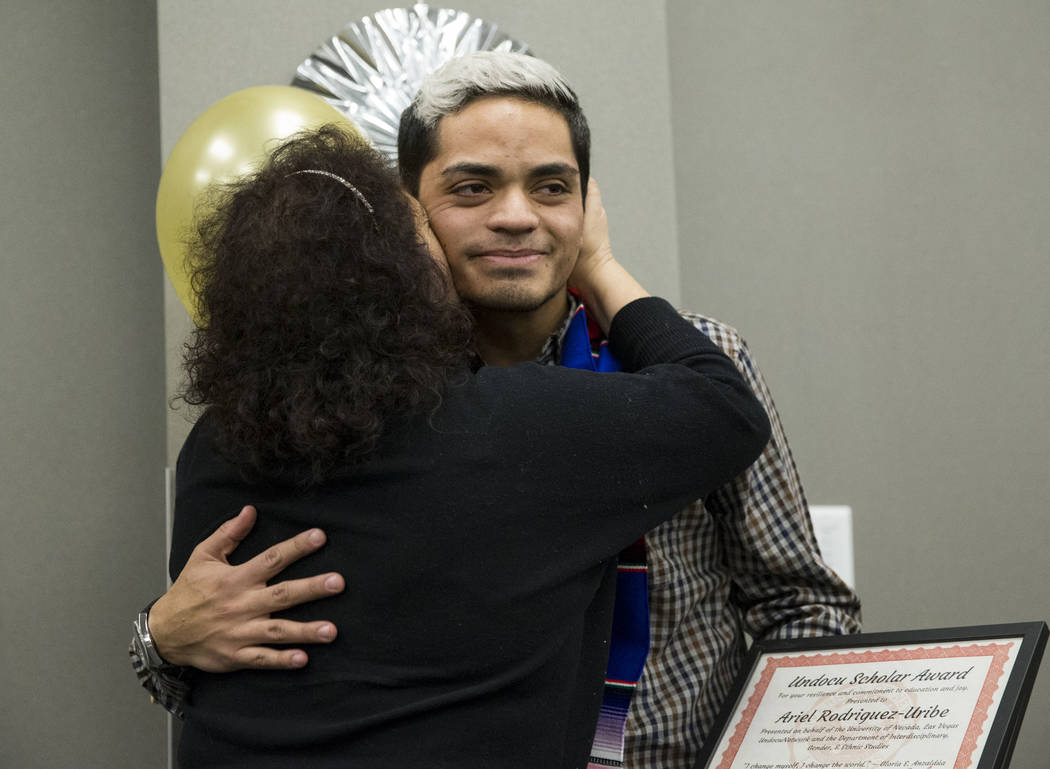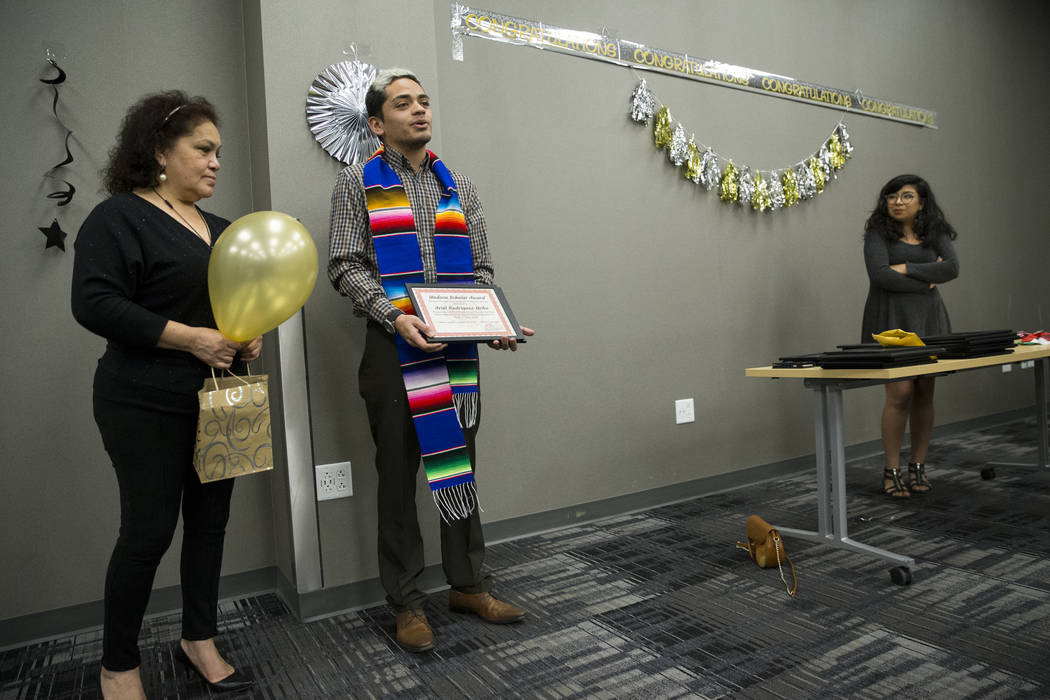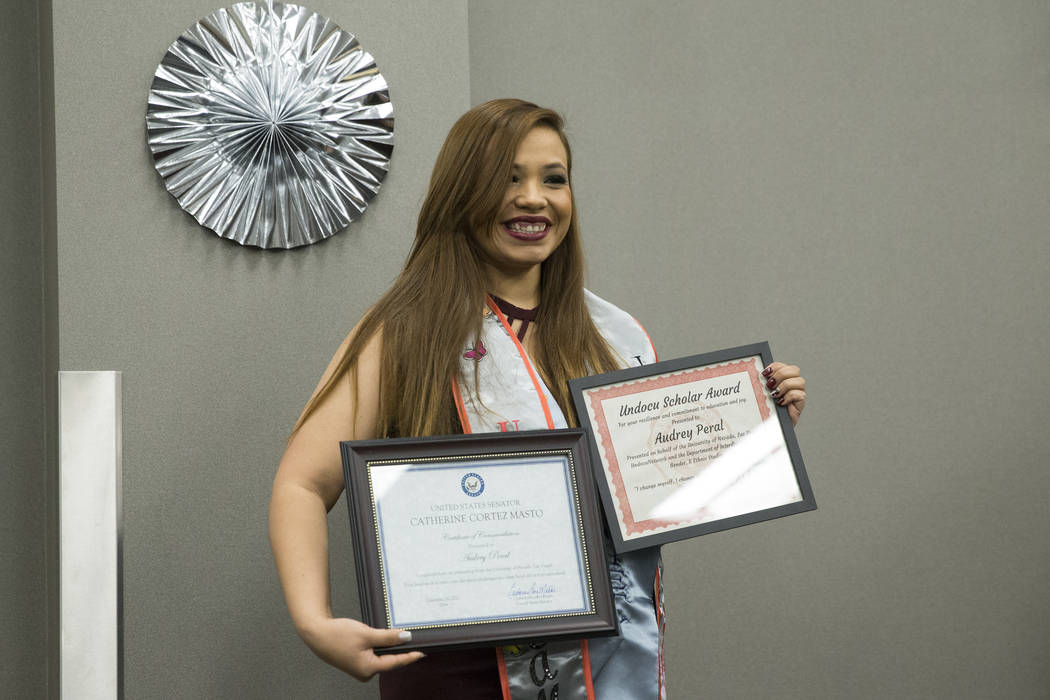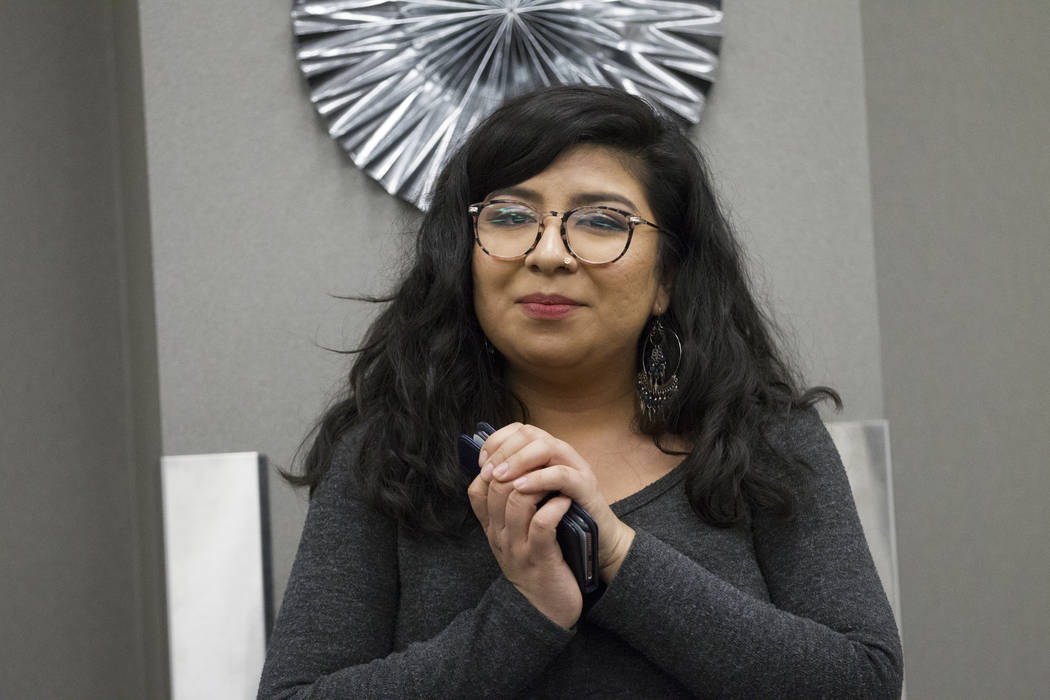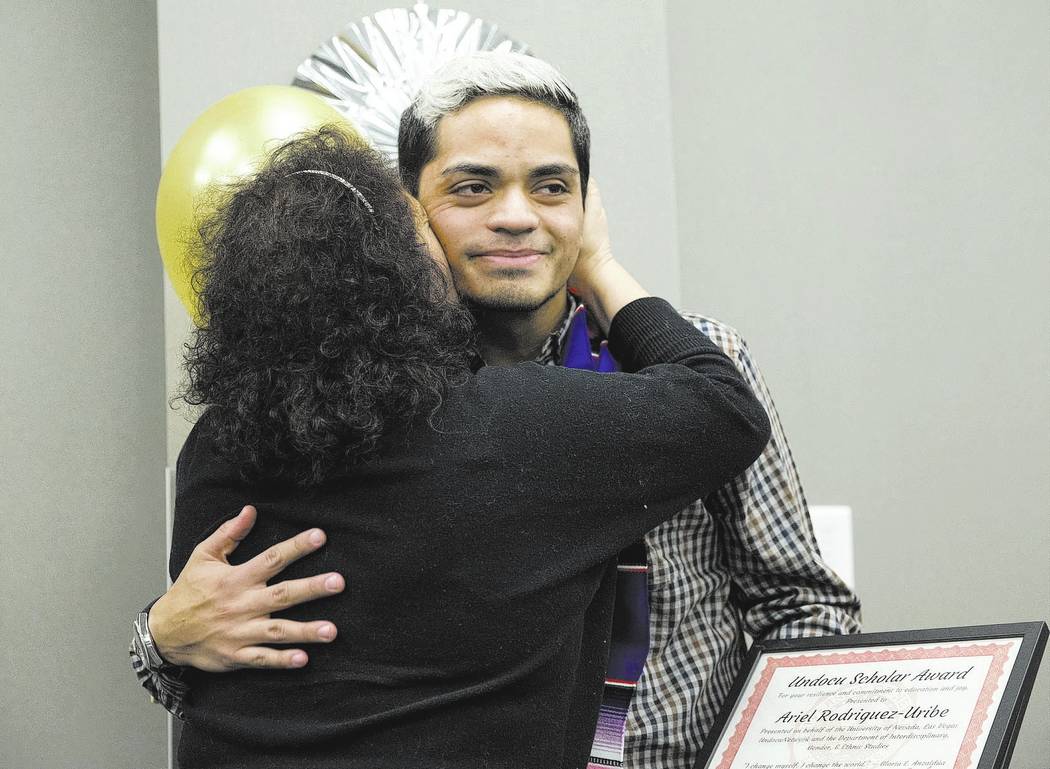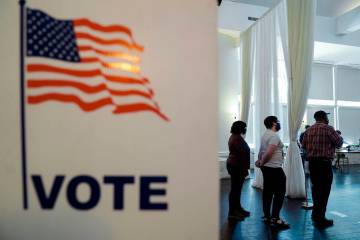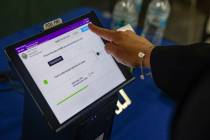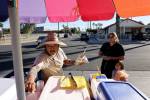Undocumented UNLV grad going back to Mexico for work
Ariel Rodriguez will cross a stage Tuesday at UNLV’s commencement ceremony, marking the end of his undergraduate education. On Wednesday, he’ll board a plane to Mexico City.
He’s not coming back.
The 26-year-old, who came to the United States legally at 15 and overstayed a tourist visa, is headed back to his birth country with his two older brothers, his parents and a 9-year-old Poodle named Ruffo for a shot at finding work with his newly acquired journalism degree.
“I’m gonna take my chances there, because there’s really nothing left for me to do here,” said Rodriguez, who has lived in Las Vegas as he studied at UNLV. “I work at a restaurant, and I can’t do anything with my bachelor’s if I don’t have a Social (Security number).”
At a small celebration on UNLV’s campus Saturday evening, the school’s UndocuNetwork, a student group for undocumented and other immigrant-status students, celebrated the graduation of Rodriguez and three others. Each new graduate received a certificate and a Mexican serape stole. They hugged family and friends and wiped away tears of joy.
“This is something to celebrate,” UndocuNetwork co-founder Mariana Sarmiento said. “I think it’s just a show of visibility, too.”
Getting to this point wasn’t easy, Rodriguez said. For years, he feared being detained and deported. He had to pay for school out of pocket, spending 90 percent of his earned income on his degree.
“I think graduating from UNLV is a, it’s like, very satisfying to me, because unlike many other students, I don’t have a Social Security (number), so first of all, I never was eligible for financial aid. Second of all, my status doesn’t really allow me to find employment,” he said.
He sought ways to become a citizen, or obtain a work permit. He met none of the qualifications.
Young undocumented immigrants, including those with Deferred Action for Childhood Arrivals status, who attend college are in search of higher-paying jobs once they graduate — similar to their citizen counterparts, said Julia Gelatt, senior policy analyst with the Migration Policy Institute, a nonprofit think tank in Washington, D.C.
“It’s incredibly frustrating to grow up hoping and expecting for more and to find yourself right back where you were before college,” she said.
That’s what Rodriguez feared. Now, it’s why he’s leaving.
His family sold all their belongings, save for a truck, in which his parents and older brothers are driving down to the border. They’ll cross in Laredo, Texas.
When Rodriguez meets them there Wednesday, he’ll carry a suitcase of clothes and a college degree — the latter the only item separating his path here from his journey back.
He’s excited to see his family, though he’ll miss his friends. But Rodriguez is positive he’ll see them again soon.
“It’s just a wall that divides us,” he said.
“I really wish to stay here. I feel like I’m a member of this society,” he said. “But no matter what I do, no matter what I can offer the country, I am not a part of it, and I’ve been told that, and the law states that.
“So I think, you know, going back is my best option right now.”
Contact Jessie Bekker atjbekker@reviewjournal.com or 702-380-4563. Follow @jessiebekks on Twitter.
Future of DACA
For some young, undocumented immigrants, the chance to work legally came with the onset of the Deferred Action for Childhood Arrivals program, created by a 2012 executive order under former President Barack Obama. The status protected about 690,000 immigrants from deportation and gave them work permits.
The Trump administration announced it would phase out that program Sept. 5. Within in the next few years, those work permits will expire, and those immigrants, some of whom arrived in the U.S. as small children, will again become undocumented.
Currently, 55 percent of DACA participants are employed. DACA participants are more likely to work office jobs than their undocumented counterparts, the Migration Policy Institutes estimates.




